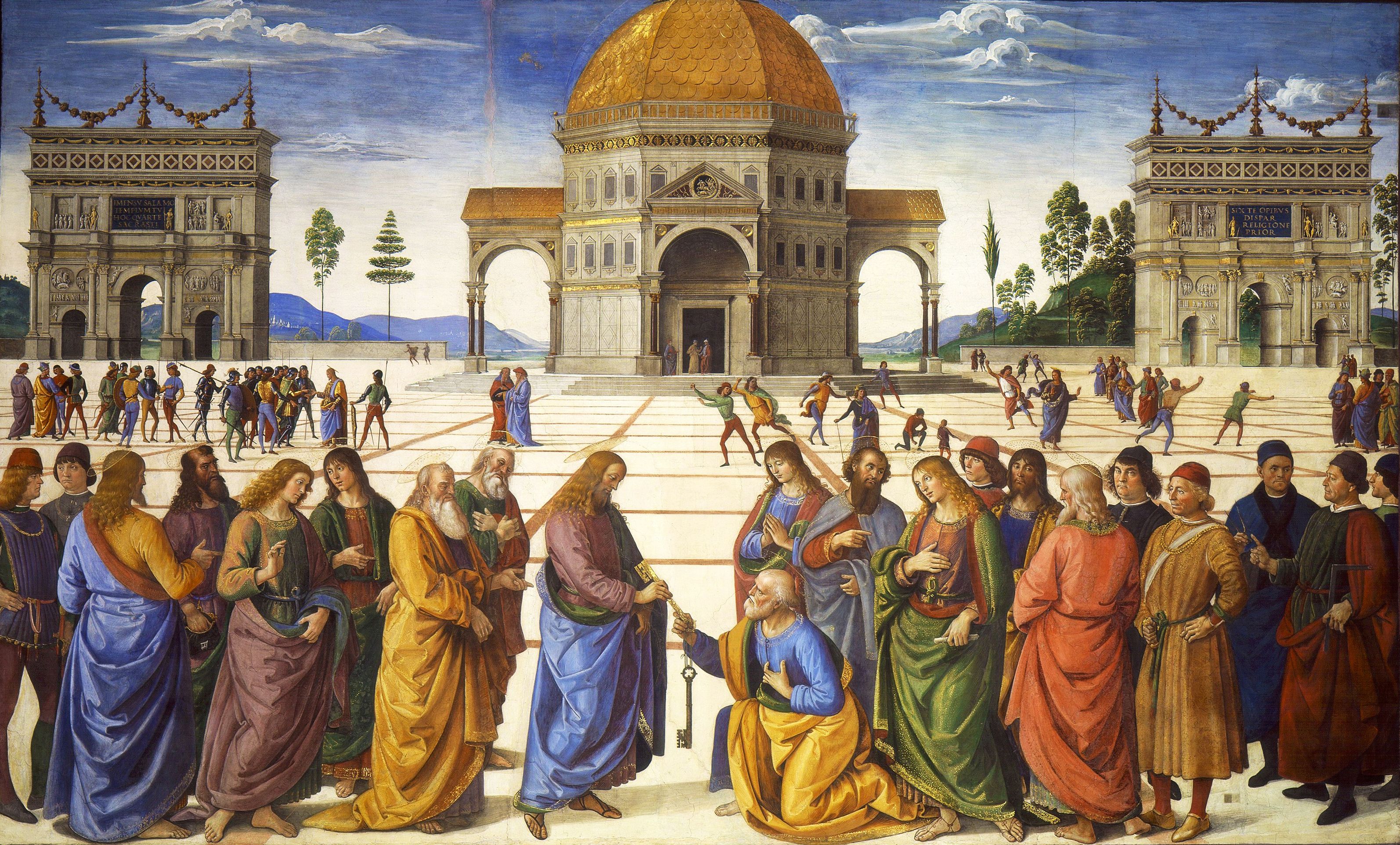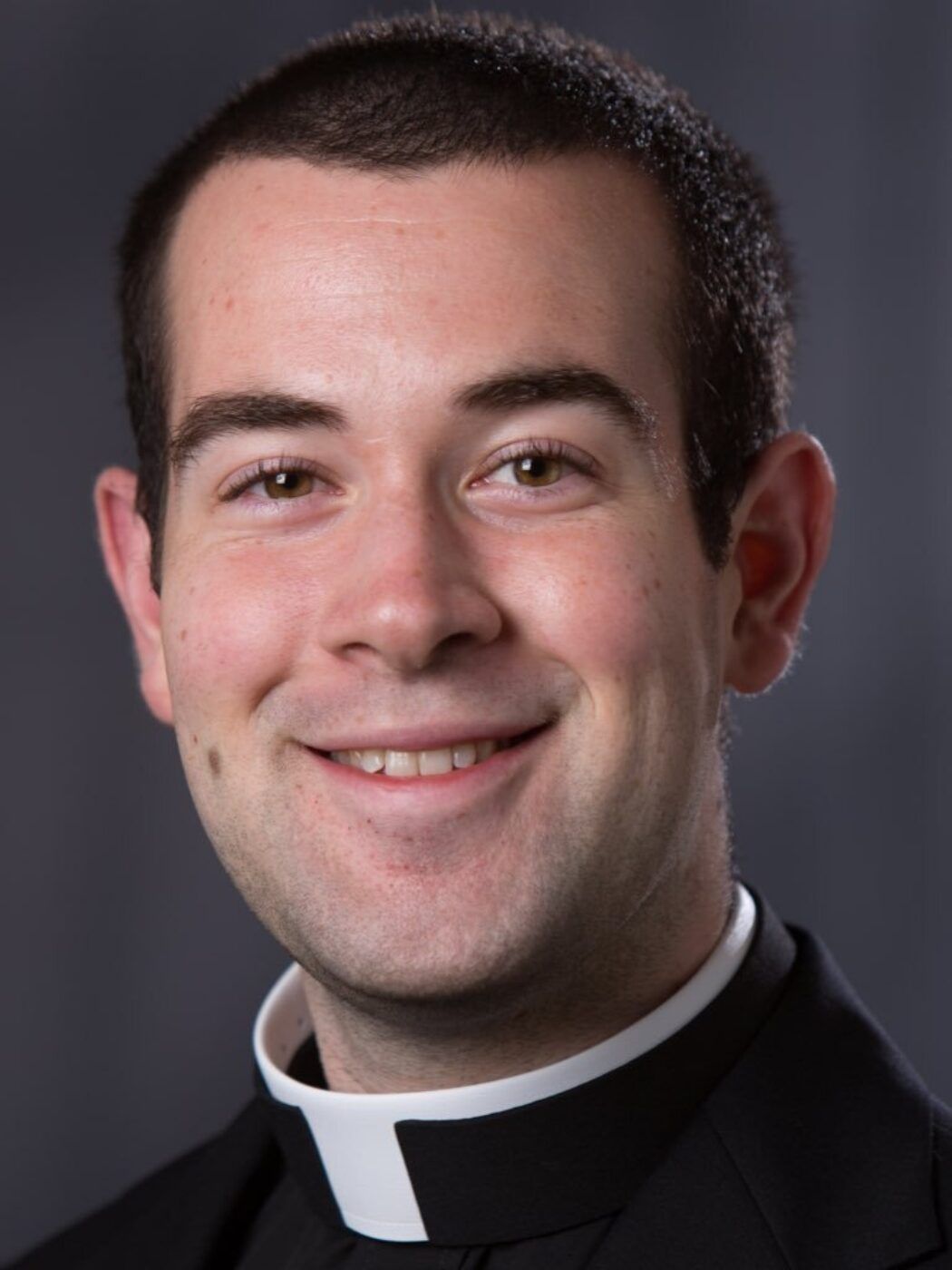Over the past couple years, a number of our seminarians and faculty have had the opportunity to visit the Holy Land. So often, our Lord used His surroundings to teach, to illuminate invisible realities by the example of what could be plainly seen by everybody. Little details of geography, which sometimes seem insignificant when read from a page, turn out to be pivotal when seen with one’s own eyes.
“And so I say to you, you are Peter, and upon this rock I will build my Church, and the gates of the netherworld shall not prevail against it.” Caesarea Philippi is in the far north of Israel in a region known as the Golan Heights, land which has traditionally belonged to Syria. Last weekend, we heard about our Lord’s encounter with the Canaanite woman in the region of Tyre and Sidon, which is in modern-day Lebanon. And so we can trace the movements of Jesus’ gradual journey from Sunday Gospel to Sunday Gospel, as today’s passage finds Him now southeast of Lebanon in Syria, and next week He will continue to move further south, ultimately on a trajectory toward Jerusalem, to suffer, die, and rise.
At the site of Caesarea Philippi, one of the things that immediately catches your eye is an enormous rock. Really a cliff up the side of a hill or small mountain. Tall, imposing, immovable. It seizes your gaze and almost compels you to look up toward heaven. A perfect job description set in stone of what Jesus was calling Peter to be and to do: To be steadfast in the divinely inspired confession of faith in Jesus, which he had just made, prompted by God’s grace. “Flesh and blood has not revealed this to you but my heavenly Father.” To be immovable in the midst of the sufferings, threats, and even death, which would soon be the lot of the Apostles who persisted in proclaiming Jesus. To be a man who by his life and preaching raised the minds of others upward, to hope for heaven and to allow heaven to change the very contours of earthly life.
But although the apostles would have to face trouble from their fellow men, their primary fight would be against principalities and powers, the unseen spiritual powers of evil who oppose God. Though their rebellion is doomed to everlasting futility, nevertheless they can do great damage along their way to destruction. And so Jesus assures that the gates of the netherworld shall not prevail against the Church which He is founding.
If you look down from this enormous rock face at Caesarea Philippi, you will find the dark mouth of a cave at the base. At the time when Jesus spoke these words, this cave was the entrance to an underground temple where the worship of a demon took place. Here people came to sacrifice animals in the darkness and to participate in ritual orgies in honor of Pan, the pagan deity which was portrayed as half-human, half-goat. Inside this cave is a stream which comes above ground nearby. As Jesus and His disciples approached the rock with the cave below it (“the gates of hell”), they would have passed by the stream, which would typically have been running red with blood from the pagan sacrifices taking place within. Perhaps the disciples were wondering why Jesus would have brought them to such an unclean, defiled place. Our Lord didn’t want to conceal from them what they would be up against. From this point on, He would begin to speak with them more openly about the Cross and the whole ordeal which was ordained for Him in Jerusalem. He did not want His disciples to be scandalized by evil, to be caused to stumble when they see it or experience it. And so, it must simply be confronted in all its ugliness, with the certain knowledge that evil does not have the last word and will be definitively defeated.

“I will give you the keys to the kingdom of heaven. Whatever you bind on earth shall be bound in heaven; and whatever you loose on earth shall be loosed in heaven.” In the ancient world, the keys represented the power of the ruler exercised vicariously through the king’s steward. We hear about this in the First Reading from Isaiah, in which the stewardship is transferred from Shebna to Eliakim, represented by the key being placed on his shoulder. When Jesus speaks to Peter of keys to the kingdom, it would have been understood that Peter was being placed in a special relationship to Jesus as his royal steward or vicar. The steward wields the power of the king in daily affairs, so long as he remains loyal to the mind of the master, enacting the royal will and not serving his own ends. This spiritual stewardship, imparted to Peter by Christ, is the basis of the papacy, the office of the Vicar of Christ. The papacy is meant to be a focal point of clarity and unity, so that all generations have access to the unbroken transmission of the faith, without any alterations or subtractions.
As we offer the sacrifice of the Eucharist today, let us pray for Pope Francis, who currently serves as Vicar of Christ, the latest in a line of succession that goes back to Peter himself, to those very words he heard at the side of the rock that day in Caesarea Philippi: You are Peter. Upon this rock I will build my church. The gates of hell will not prevail against it.


